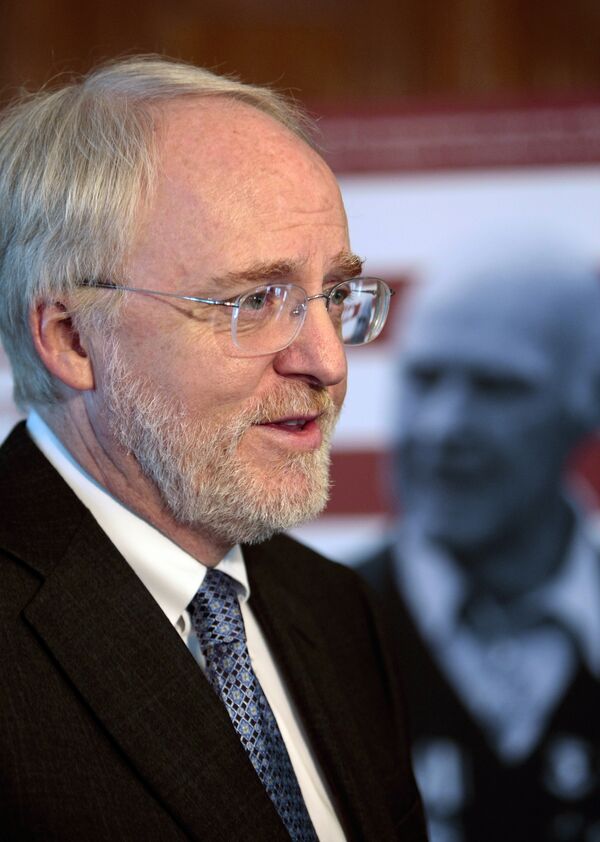U.S. Ambassador to Russia John Beyrle named on Wednesday four main nuclear-connected threats to international security.
"Despite constructive cooperation with Russia, the global non-proliferation regime is under great stress," the U.S. diplomat said during a conference on nuclear nonproliferation in the Russian capital, Moscow, which took place ahead of the 2010 Nuclear Non-Proliferation Treaty Review Conference due in New York on May 3-28.
Beyrle said the first challenge is "the growing interest by countries and non-state actors in acquiring sensitive nuclear technology." The second is "the gaps in the verification system of the IAEA, which complicate its ability to detect undeclared nuclear activity."
The third challenge, according to Beyrle, is "the failure of a handful of states... to comply fully with their obligations under the NPT and in particular IAEA safeguards agreements," and the fourth is "the threat of nuclear terrorism."
In his speech, the U.S. diplomat pointed to the Iranian nuclear program, which recently became the focus of international media attention due to Islamic Republic's move to begin enriching uranium to 20% purity.
The ambassador said the issue can be resolved through diplomatic means, but additional pressure is needed to make the Islamic republic halt its uranium enrichment program.
Beyrle said Iran's unwillingness to cooperate with the International Atomic Energy Agency and prove the peaceful nature of its nuclear program raised concerns from the United States and the international community.
Tehran insists it needs enriched uranium for peaceful energy production, but Western powers suspect the Islamic Republic of attempting to develop nuclear weapons.
Iran has said the 20% enriched fuel is required for a reactor in Tehran that is used to make medical isotopes. Following Iran's move, the U.S. State Department said the international community was ready to help Iran import medical isotopes from abroad, which would make Islamic republic's new uranium enrichment plan "unnecessary".
Iran has already rejected an IAEA plan under which the Islamic Republic was to ship out its low-enriched uranium to Russia for further enrichment and subsequently send it to France for processing into fuel rods.
Tehran has suggested it could consider a swap of its low-enriched uranium for 20%-enriched uranium, but that the exchange should be simultaneous and would have to take place on its own territory.
MOSCOW, February 24 (RIA Novosti)




